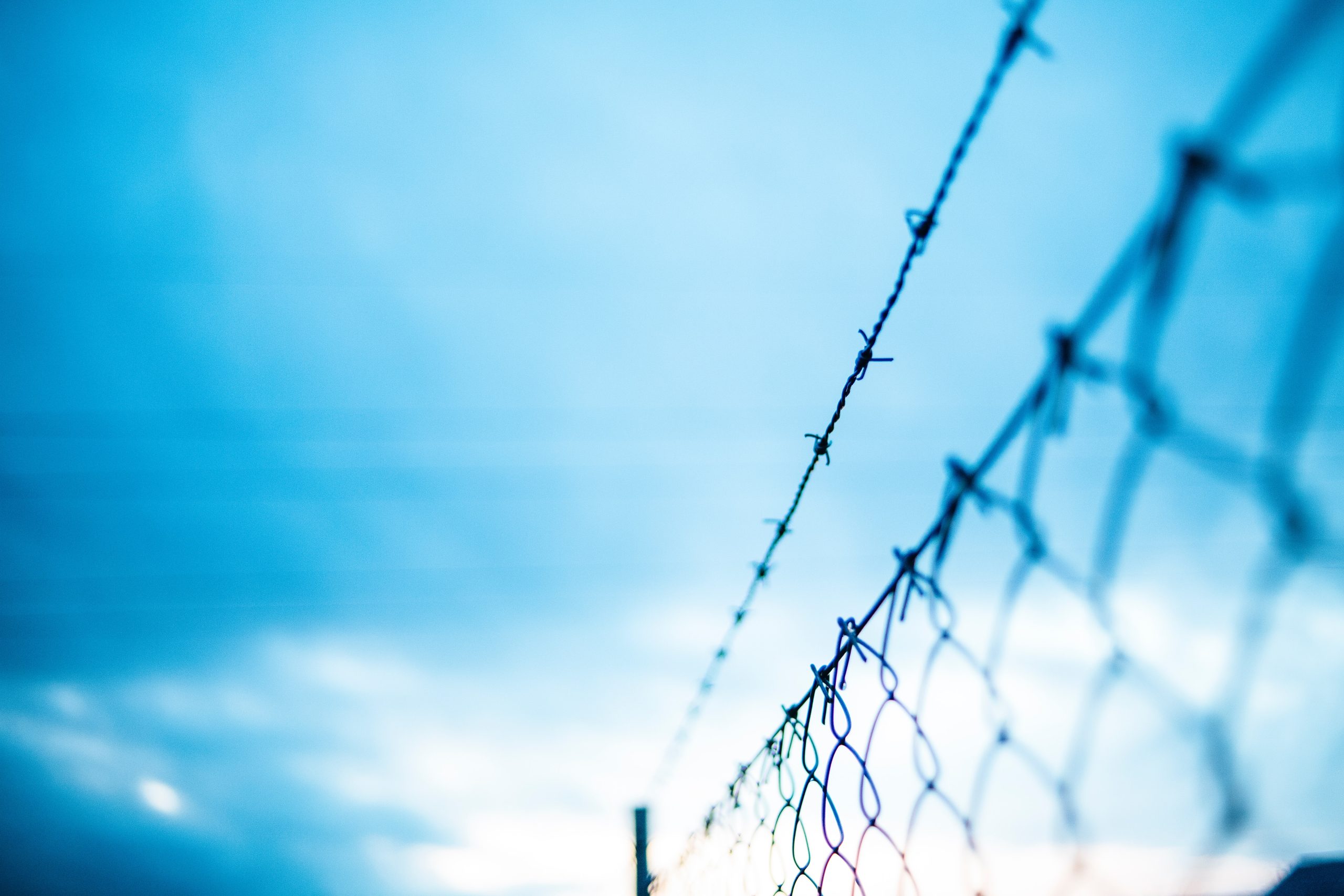Hybrid Warfare is the use of different tactics to attack an enemy. Such tactics could involve spreading fake news, hacking computer systems and/or the traditional use of military warfare. As tensions rise within the EU and its neighbors over the handling of migrants, refugees and asylum seekers are finding themselves to be used as pawns by governments to further their own agenda.
For over five weeks now, 32 Afghan refugees have been trapped between the border of Belarus and Poland. The Polish government is preventing the Afghans from using their right to seek asylum. They are also being denied access to food and medicine. On September 1st the UNHCR along with the Belarusian Red Cross and the Polish Red Cross provided humanitarian help to the group of refugees stuck at the border. However, under EU and international refugee law, Poland is obliged to ensure individual assessment of all asylum cases. Organisations such as Amnesty International have urged Poland’s government to end the pushbacks, to ensure access to the area for those in need of protection and to immediately provide the refugees with proper humanitarian assistance. The question of how the European Union will deal with this crisis will be a crucial topic in the upcoming months, as thousands of people are expected to make their way to Europe as a result of the takeover by the Taliban in Afghanistan.
Refugees (Un)welcome
On September 2nd, The Polish President Andrzej Duda introduced a 30 day ”State of emergency”, along the border area covering two Polish counties. It is the first state of emergency in the country since the fall of Communism. The decision has been introduced based on a particular danger to citizens and the public order related to the current situation on the border between the Republic of Poland and the Republic of Belarus. Some limitations include the organisation of gatherings, staying in the designated areas, a limited access of public information on the activities carried through in the designated areas, along with a ban on recording in specific places, objects or areas covered in the ”State of emergency” areas, as specified on the President’s own website. Such a state of emergency restricts the monitoring of human rights violations in the area and allows the Polish government to operate outside of the public view and opinion.
The approach, as reported by the Human Rights Watch, is justified by the Polish government by claims of the Belarus regime encouraging people to move to the Polish border as a response to EU sanctions against Belarus. This isn’t the first pushback by Poland against refugees In 2017, at the formal border crossing with Belarus in Terespol, asylum seekers (mainly from Chechnya) were continuously denied access to seek asylum in Poland. They were returned by train to Brest, Belarus. This year, 2021, the European Court of Human Rights ordered Poland to pay three Syrian nationals 10,000€ each in compensation for illegal pusbacks of said nationals to Belarus. Their case has been before the court since 2017. The right to seek asylum in Belarus is still a virtually non-existent possibility.
Source: Pxfuel. A map over Europe, including parts of Russia, Central Asia, the Middle East and North Africa.
EU Relations with Belarus
Restrictive measures on part of the EU have progressively been imposed on Belarus since October 2020 as a response to fraudulent presidential elections held in August the same year. The other reason for the measure was increased intimidation and violent repression of peaceful protesters, opposition members and journalists. The results of the presidential elections in Belarus were not recognised by the EU. Further sanctions were imposed by the EU when the Belarus regime forced a Ryanair plane to land back in May in order to arrest a dissident journalist on board.
The Response of other EU Member States
Poland is not the only country expressing grave concern with refugees and asylum seekers at its borders. In a common statement, the prime ministers of Lithuania, Latvia, Estonia and Poland express great concern and point to the current crisis at their borders as planned and systematically organised by the Belarusian leader Alexandr Lukashenko. According to the ministers, Belarus is using immigrants to destabilise neighbouring countries, which is a clear breach of international law and qualifies as a hybrid attack on Latvia, Lithuania, Estonia and Poland. Therefore it is seen as an attack against the entire European Union. The Latvian interior minister, Marija Golubeva, also highlights that Lukashenko’s plan of action is to overwhelm the reception and asylum systems of the EU with a new wave of irregular migration. This is to limit the EU’s capacity to react to genuine crises and that is nothing other than a form of hybrid warfare on the part of the Belarus regime. According to the minister, the EU countries have limited tools to push or force back those who enter its borders illegally, which is something that Lukashenko’s government has exploited.
Other member states, such as Germany, have similarly expressed concern with the Belarusian hybrid warfare strategy. Angela Merkel disapproved of using refugees as a tool to destabilise international security and assured that Germany will have a close coordination with the other member states. She also stressed that the hybrid confrontation is seen as an attack on the member states in the EU.
Furthermore, Europe is still trying to absorb significant numbers of migrants who arrived to its countries over the past few years. More than one million immigrated only in the year of 2015. Political divides between the twenty-seven countries in the EU have been deepened over the question of whether to welcome or push back people fleeing war and poverty; it has also led to an increase in anti-immigrant political forces. Whether immigration is considered a large concern at the EU and national level vary significantly, according to the Eurobarometer survey from 2021. At the EU level, environment and climate change (25%, +5), along with immigration (25%, +7) share second place, with the economic situation 27%, -8) deemed the most important issue currently facing the EU. On a national level however, the figures are remarkably different. Health (28%, -16) remained the most important issue, with the economic situation (26%, -7) coming second. At a national level immigration (10%, +3) as a concern came at the 9th place.
Source: “Spring 2021 – Standard Eurobarometer” (EB 95). Graph showing the division of most important issues at the EU level according to the EU member states.
Source: “Spring 2021 – Standard Eurobarometer” (EB 95). Graph showing the division of most important issues on a national level according to the EU member states.
The countries which pointed out immigration as one of the two most important issues facing the EU at the moment were: Cyprus (48, +4), Czech Republic (42, +10) and Malta (40, +6). The issue of immigration was regarded as least important by countries such as Romania (15, +2), Ireland (15, +4), Italy (19, +9) and Croatia (19, +2). Even though the numbers among the EU member states varied, most of the countries considered an increase of immigration to be an important issue. On the other hand, on the national level, countries which pointed out immigration as one of two most important issues facing their respective country were: Sweden (25, +8), Cyprus (23, +7) and Malta (20, -2). With lowest numbers in member states such as Portugal (2, +2), Ireland (2, +0) and Latvia (3, +2).
Source: “Spring 2021 – Standard Eurobarometer” (EB 95). Graphs showing the division of the EU member states on both an EU (right graph) and national level (left graph) of the most important issues currently facing the EU.
Military Exercises at the Borders
Apart from the uncertain migration situation at the borders between the EU and Belarus, other alarming events have been taking place. One such event was the launch of ” Zapad-2021” by Russia and Belarus, a military exercise involving 200,000 troops, estimated to last for three months. These forms of military exercise close to the borders has been perceived as provocative by states such as Ukraine, Poland and Lithuania. The manoeuvres take place every four years but are seen this year as a way to highlight Russia’s support for Belarus. While the country has been harshly criticised by the EU for inappropriate treatment of dissent, it is a strategically essential buffer for Russia and Vladimir Putin. The Russian president provided the leader of Belarus with loans and political support during the fraudulent presidential elections in Belarus during 2020. NATO officials have stated that the military manoeuvres increase the risk of an accident or miscalculation which could lead to a crisis. All while Russia, joined by Belarus forces, expresses that it is within its rights to exercise on its territory and is clear about the numbers of troops involved. Assertive measures could be possible if given greater public attention to the issue and its impact on the EU member states. But previously imposed sanctions by the EU towards Belarus have not stopped Lukashenko’s violence. Given the support of Russia to Belarus, the effect of the sanctions is limited.
An Uncertain Future
A very uncertain future lies ahead for the 32 Afghan refugees, and others, who are currently stuck at the different borders between the European Union and Belarus. It is a humanitarian crisis with far reaching political implications, involving a new method of warfare, one that weaponises migrants. The combination of military exercises on part of Russia and Belarus is another alarming element to this issue, seen as a large-scale military exercise so close to the borders of the EU raises concerns of the EU and NATO.
The member states will have to find a common solution on how to breach the divide between the different stands on migration as well as addressing the political threat at its Eastern borders. Whether this includes further sanctioning of Belarus and Russia in other ways than have already been implemented, or more political pressure on countries such as Poland, Latvia and Lithuania to welcome a larger number of immigrants, is still unclear.

Magdalena Kamont
Master student of the "International Administration and Global Governance" programme at the University of Gothenburg. Currently writing her master thesis on democratic decline in Poland. Former intern at Sida.





